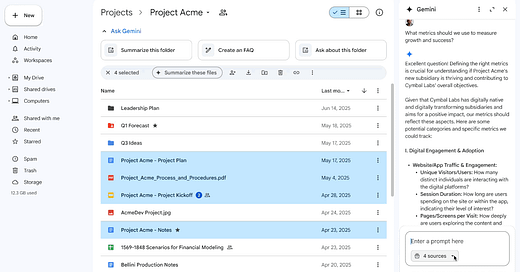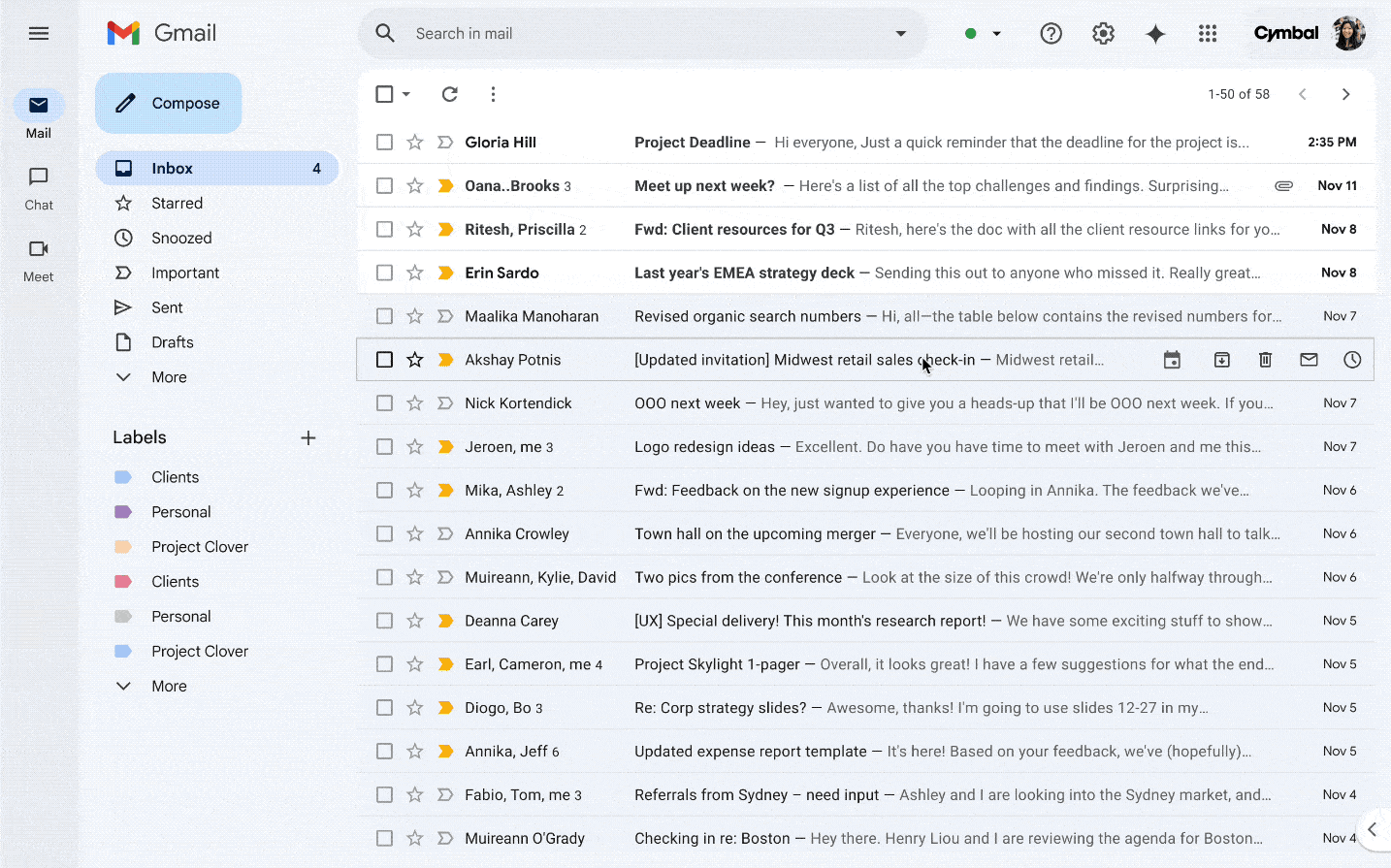Gemini Is Reading Your Emails (Kind Of)
Google's Gemini AI is now integrated into Workspace tools like Gmail and Drive. Is this the productivity boost we waited for, or does it raise new concerns?
We’re back with another product move that looks small… but changes everything.
Last week, we explored why Gen Z won’t quit Snapchat.
This week? We’re zooming in on Google’s latest AI power play.
Gemini is now baked into Gmail, Docs, Sheets, and Drive.
It can write, summarize, search, and even “understand” your inbox.
Sounds amazing.
Until it’s not.
Gemini AI in Google Workspace Tools
Google quietly rolled out Gemini across Workspace tools.
In Gmail, Gemini can write your replies, summarize threads, and answer questions like “What did my boss say about Q3 planning?”
In Drive, it helps organize and summarize files—like a supercharged search assistant.
Google promises:
“Gemini doesn’t use your content to train AI models unless you explicitly opt in.”
But not everyone is buying it.
Google added Gemini to help users with tasks like drafting emails and summarizing documents. However, the move has sparked discussions about data privacy and user control.
Here's What We Know
In Gmail, Gemini can write replies, summarize emails, and answer questions about your inbox. In Drive, it can summarize files and help organize them.
Google says Gemini stays inside your company’s account and won’t use your data to train AI unless you say it’s okay.
Some people say Gemini shows up in their Gmail or Drive even after they turned it off, which makes them feel like they are not in control.
Some experts found that some prompts can trick Gemini, which might put the user's data at risk.
Think Like a PM
This is a classic product tradeoff:
Do users get more done? Yes.
Do they trust the tool? That’s where it gets tricky.
So let’s unpack the product questions this raises:
How do you balance productivity and control?
How would you design opt-in flows for something this sensitive?
Drop your thoughts in the comment section.
Thoughts From The JAPM Team
Last, we talked about why Gen Z wouldn’t leave Snapchat, and this is what we think.
Snapchat’s staying power isn’t just about features. It’s about feeling.
Other apps are loud and public. Snapchat feels private. Safe. More like texting close friends than performing for followers.
It taps into what Gen Z craves: realness without the pressure. Even if the tech isn’t new, the emotional vibe still hits. But loyalty has a shelf life.
As users grow up, their needs change.
Private chats today could turn into new habits tomorrow. If we were on Snap’s product team, we would double down on messaging… but smarter.
Think:
Tighter groups (best friends only)
Smarter streaks (not just daily, but meaningful)
Invisible mode upgrades (better privacy controls)
New features are tempting. But trust is harder to rebuild than to refresh.
It's about deepening real friendships, not chasing the next trend.
See you in the comments.
—Sid








